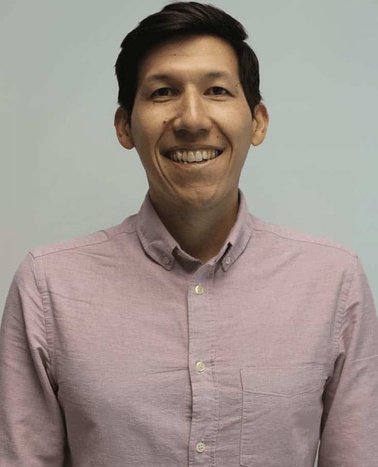
Andrew Wong
Andrew Wong defines himself as a Jewish Asian American IE Alum now living in Madrid, where he co-founded Fundie Ventures, an impact venture that provides consultancy to social enterprises. He has lived most of his life in the U.S. where he pursued his Bachelor in Political Science at Syracuse University.
Before his Master in Advance Finance in IE, he studied an MBA in Vienna and worked as a smattering of jobs from snowboard instructor to chef at a Vietnamese Restaurant. Being nominated as Forbes 30 Under 30 in Finance has allowed him to take advantage of the platform to spread his work and his passion for fighting inequality.

"Iterate often, practice self love and take care of yourself both physically and mentally. Stay hungry, stay foolish."
Can you tell us about yourself?
I’m from New Jersey, although my friends will tease me in that I frequently say I am from New York – to be fair I was born in NY and it says so in my passport. I have what may be an overly developed sense of social justice for causes like racial, gender, economic and environmental inequality. I play four instruments, speak three languages, and am currently working my way through book 4 of Harry Potter.
What life experiences brought you to where you are now?
For being 30 years old, I’ve had a lot of different experiences so far. In broad strokes: I studied political science and psychology in my undergrad, interned at a fund of funds doing research in renewables, worked as a chef at a Vietnamese restaurant, worked in venture capital, worked as a snowboard instructor. I gave a career in music as a drummer a shot, worked at a children’s NGO in Santiago, Chile, did an MBA in Vienna while working at the Impact Hub. And, I did my MIAF at IE Business School, worked at an impact VC, and founded Fundie Ventures with classmates from IE Business School.
Can you tell us what is Fundie Ventures?
Fundie Ventures is an impact venture consultancy that helps social enterprises prepare to raise capital. We help entrepreneurs craft and hone their pitch deck and verbal presentation. We work with them to understand how their business plan and strategy will reflect in their finances, and thus the capital required. We find “red flags” that investors might balk at, and provide other services –impact assessment and measurement, research, etc.—to help social enterprise reach the next stage.
What brought you to found the company?
Fundie was actually originally founded by Stuart Minnaar and 3 other students at IE with the intention of raising an impact VC fund. I stepped in 6 months after the initiative began and have run with it since. It was born out of the desire to do something constructively positive with our educations and pivoted from an aspiring VC fund to a consultancy.
Have you always had a passion for helping others? How has this passion developed throughout the years?
I don’t think I would characterize myself as someone who “always had a passion for helping others”. I’ve just tried to a be a stand-up guy and have tried to live up to my values and compassion for others. My parents were not of wealthy means growing up and I think my sense of helping others stems from feeling a need to pass on the generosity and good fortune that they’ve given to me.
This developed from being a decent human being (e.g. being polite, holding open a door for people, saying please and thank you, etc.), to being outspoken, for example using my male privilege to call out thinly veiled racism – particularly during the US 2016 elections, and has manifested into part of my career. There’s a great organization called 80,000 hours that helps guide people looking to make the most impact with their careers. I wish I had heard about it ages ago.
You have been chosen as Forbes 30 under 30 for Finance. Do you believe this recognition comes with a responsibility? What does it entitle?
I have. It’s been a wild ride. A big thank you to my friend Stuart for nominating me. Generally, I think with great power comes great responsibility (yes, that’s from Spiderman) and vice versa (and yes, that’s from The Subtle Art of Not Giving a F*ck). But I’m not sure being named an Under 30 has given me any more power than before. If anything, it has given me a platform to speak and has made it easier to reach out to people, which is always nice and very much appreciated. At the end of the day, I think the Under 30’s purpose is to recognize up and comers with great potential and respectable traction, but the ink hasn’t yet dried on our stories – so we’ll see how things unfold.
You studied the Master in Advanced Finance at IE. How do you feel this Master helped you understand the needs of modern social enterprises?
Before IE, I had earned my MBA. It prepared me well for understanding the business side of social businesses – after all, social enterprises use business/revenue models like traditional businesses do and need to be profitable as well, so their drivers are similar. The only difference is that social businesses ask the additional question, “how can we use our business model to improve the world?”
However, I am so thankful for my finance degree, as the MBA does a great job of producing generalists, but not necessarily specialists. Having a solid grasp of finance has been tremendously helpful in working with social enterprises – we help them understand their impact and business strategy, how that translates to their finances and profitability, and ultimately how that affects their capital needs. I don’t think I would have been able to do this work without the MIAF degree.
What challenges are you facing as an entrepreneur today? What advice would you give to students that dream of starting their own company?
People say being an entrepreneur is difficult – they’re not wrong. The biggest challenge I personally have is prioritizing what matters most and not chasing a feeling of being “busy”. I struggle with that a lot, but using Asana and an Eisenhower chart helps a lot. Some advice, putting on my MBA hat: think of an idea that adds value or kills a pain, validate the product/market fit, fill out a business model canvas, and get cracking. Other advice, in no particular order – reach out to a mentor, find a great lawyer and accountant you trust, find some co-founders who you work well with and are as equally invested in the idea as you are, iterate often, practice self-love and take care of yourself both physically and mentally, (stay hungry, stay foolish!).